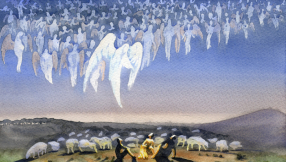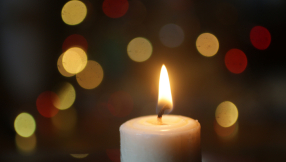
Black Church leaders have expressed their disappointment over a Government report into racism in Britain today.
The Commission on Race and Ethnic Disparities Report was prompted by last year's Black Lives Matter anti-racism protests held across the UK following George Floyd's death.
The report, which has proved contentious, rejected terms like "white privilege" but also 'BAME' (Black, Asian and Minority Ethnic).
It further claimed that the UK should be a "model for other white majority countries", and suggested family breakdown was a bigger factor in the inequality of attainment than race.
"Put simply we no longer see a Britain where the system is deliberately rigged against ethnic minorities," the report said.
Responding to the report, the National Church Leaders Forum (NCLF) today said there had been "feelings of deep hurt, especially concerning the suggestion that institutional or systemic racism in the UK no longer exists".
"This runs counter to their lived experiences and the success of some has been achieved in spite of, not in the absence of, institutional or systemic racism," the Church leaders said.
"This miscalculation is to be regretted since it hinders real engagement with elements of the report that could be impactful."
The Church leaders welcomed the report's recommendations to build trust, promote fairness, create agency and achieve inclusivity, and agreed that the term 'BAME' should no longer be used.
But they also called on the Government to ensure that these recommendations are acted upon.
They said there was the need for a "respectful and constructive approach" to discussions around race and racism, and concluded that much more needed to be done to achieve racial justice in modern-day Britain.
"The Christian faith promotes justice based on God's call to love our neighbour as ourselves, and those in authority to administer fairness for everyone," they said.
"Racism along with other intersectional factors lead to disparities and inequities in employment, education, health, housing and much more.
"While significant progress has been made in our multicultural society, much more needs to be done before the U.K. can justly regard ourselves as a beacon of racial justice in the world."
They added: " Church leaders stand ready to contribute to conversations and actions leading to a more racially and ethnically just country."
The statement follows similar comments from the Bishop of Dover, the Rev Rose Hudson-Wilkin, the Church of England's first black female bishop, who said the problem could not be blamed on family issues.
She told ITV's Good Morning Britain: "I think what concerned me most about that report was about this blanket thing that Britain can now be an example to other majority-white people. No, it is not an example.
"Is it getting some things right? Absolutely yes.
"But we will become an example when I walk into large establishments, or any establishments, for that matter, and I don't see black people only sweeping the floors, doing the cleaning and the catering.
"I will know when I see black people sitting around every table up and down this land.
"When I see black people in leadership in all walks of life, then we will be able to say - and I will happily say that Britain can become a model country. We are not there yet so please let's not kid ourselves."













